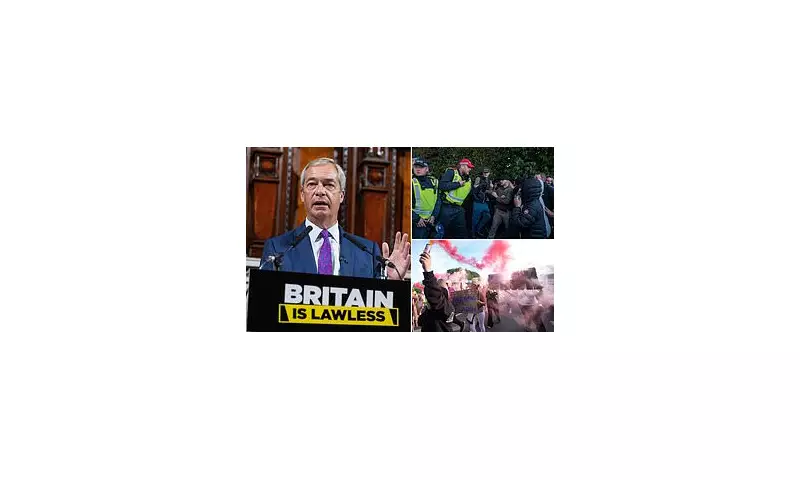
Nigel Farage has sounded the alarm over Britain's future, declaring that the country is on the brink of 'societal collapse' unless urgent measures are taken to cut crime rates by half within the next five years.
The former UKIP leader and prominent Brexit campaigner delivered his grim assessment during a recent interview, where he criticised the government's handling of law and order. Farage argued that rising crime, coupled with failing public services, could push the UK into irreversible decline.
Farage's Dire Prediction
Farage warned that without immediate intervention, Britain could face a breakdown in social cohesion. 'We are sleepwalking into disaster,' he said. 'If we don't act now, we will see communities fracture and trust in institutions evaporate.'
He pointed to soaring rates of violent crime, burglary, and anti-social behaviour as evidence of a system in crisis. Farage also blamed lax sentencing and under-resourced police forces for the worsening situation.
Five-Year Plan to Save Britain
The political firebrand proposed a radical five-year strategy to reverse the trend, including:
- Doubling police presence in high-crime areas
- Introducing tougher sentences for repeat offenders
- Reforming the justice system to prioritise victims' rights
- Investing in youth outreach programmes to prevent crime at its roots
Farage insisted that only bold action could prevent what he described as a 'point of no return' for British society.
Public Reaction and Political Fallout
His comments have sparked fierce debate, with critics accusing him of alarmism. However, supporters argue that Farage is highlighting long-ignored issues that mainstream politicians refuse to address.
As the UK grapples with economic uncertainty and social tensions, Farage's warning serves as a stark reminder of the challenges facing the nation. Whether his proposed solutions gain traction remains to be seen, but one thing is clear: the debate about Britain's future is far from over.





